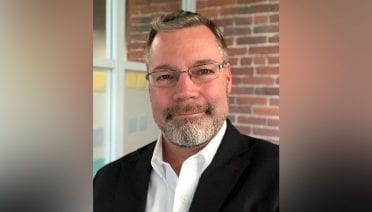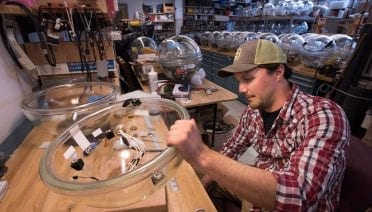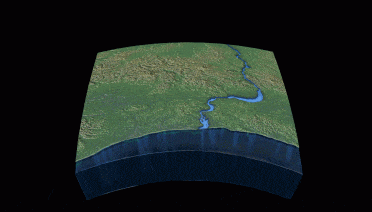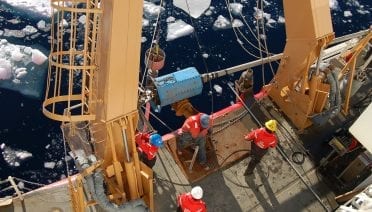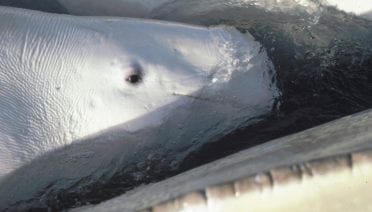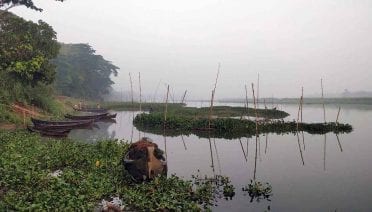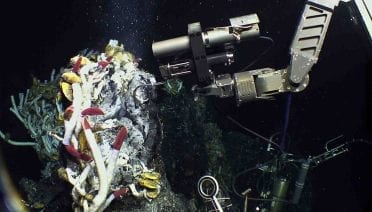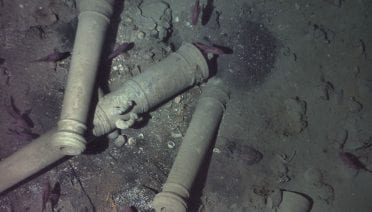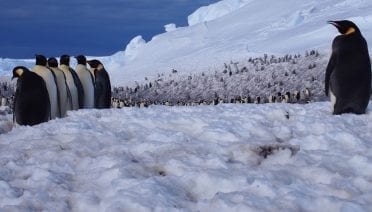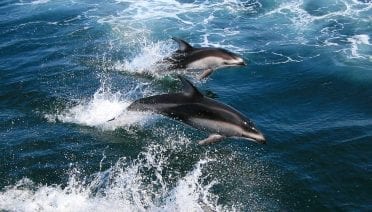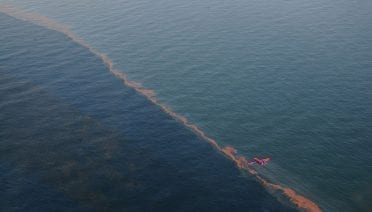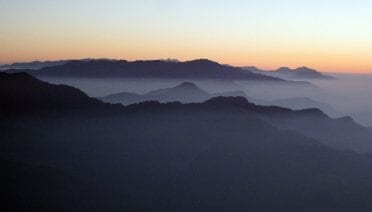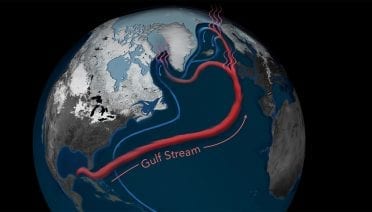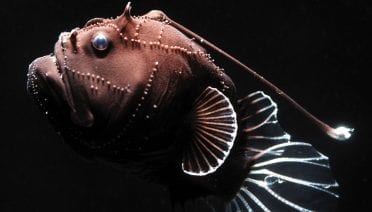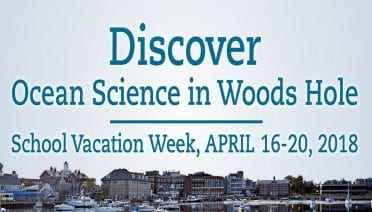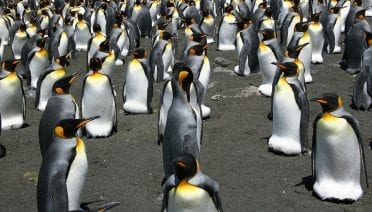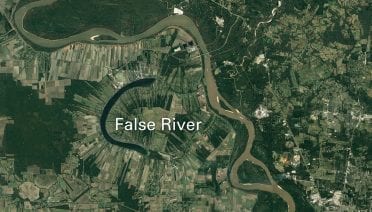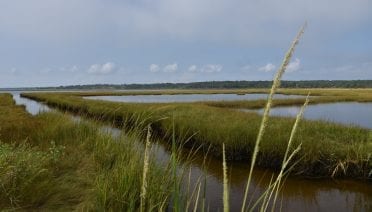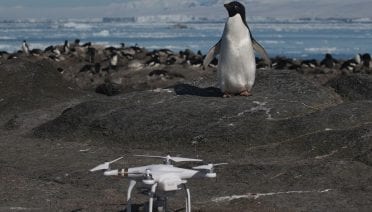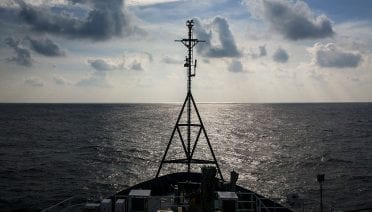Press Room
The Woods Hole Oceanographic Institution (WHOI) has selected Samuel C. Harp, an international brand marketing expert, as the Institution’s first Vice President for Advancement and Chief Marketing Officer. Harp has spent much of his career in academic, technology, and research […]
The National Science Foundation (NSF) has announced that the Woods Hole Oceanographic Institution (WHOI) will operate a new center to provide seafloor seismographs and technical support to the U.S. academic community beginning in August 1, 2018. The new Ocean Bottom Seismograph […]
Sea levels in coastal areas can be affected by a number of factors: tides, winds, waves, and even barometric pressure all play a role in the ebb and flow of the ocean. For the first time, however, a new study led by the Woods Hole Oceanographic Institution (WHOI) has shown that river outflow could play a role in sea level change as well.
A research team led by Woods Hole Oceanographic Institution (WHOI) found the fingerprint of a massive flood of fresh water in the western Arctic, thought to be the cause of an ancient cold snap that began around 13,000 years ago.
Scientists published the first hearing tests on a wild population of healthy marine mammals. The tests on beluga whales in Bristol Bay, AK, revealed that the whales have sensitive auditory systems and showed less age-related hearing loss than is expected.
The Ayeyawady River delta in Myanmar is home to millions of people, and is a hub of agricultural activity. Unlike other large rivers across the world, however, the Ayeyawady has been relatively untouched by large infrastructure and dam projects for the past 50 years, and its geologic evolution has never previously been studied.
Miles beneath the ocean surface in the dark abyss, vast communities of subseafloor microbes at deep-sea hot springs are converting chemicals into energy that allows deep-sea life to survive, and even thrive, in a world without sunlight. Until now, however, measuring the productivity of subseafloor microbe communities (or how fast they oxidize chemicals and the amount of carbon they produce) has been nearly impossible.
The Woods Hole Oceanographic Institution (WHOI) recently obtained authorization by Maritime Archaeology Consultants, Switzerland AG (MAC), and the Colombian government to release new details from the successful search for the three-century old San José 62-gun, three-masted Spanish galleon ship that sank with a cargo believed to be worth billions of dollars. The ship, which is often called the ‘holy grail of shipwrecks,’ went down with a treasure of gold, silver, and emeralds in 1708 during a battle with British ships in the War of Spanish Succession.
For Emperor penguins waddling around a warming Antarctic, diminishing sea ice means less fish to eat. How the diets of these tuxedoed birds will hold up in the face of climate change is a big question scientists are grappling with.
Researchers […]
Deep-diving whales and other marine mammals can get the bends – the same painful and potentially life-threatening decompression sickness that strikes scuba divers who surface too quickly. A new study offers a hypothesis of how marine mammals generally avoid getting the bends and how they can succumb under stressful conditions.
A research team led by Woods Hole Oceanographic Institution (WHOI) found that sunlight chemically alters crude oil floating on the sea surface within hours or days. In a follow-up study the team reported that sunlight changes oil into different compounds that dispersants cannot easily break up. The results of these two studies could affect how responders decide when, where, and how to use dispersants.
Scientists have long known that steep mountain ranges can draw carbon dioxide (CO2) out of the atmosphere as erosion exposes new rock, it also starts a chemical reaction between minerals on hill slopes and CO2 in the air, weathering the rock and using CO2 to produce carbonate minerals like calcite.
Atlantic Ocean Circulation at Weakest Point in More Than 1500 years New research led by University College London (UCL) and Woods Hole Oceanographic Institution (WHOI) provides evidence that a key cog in the global ocean circulation system hasn’t been running at peak strength since the mid-1800s and is currently at its weakest point in the past 1,600 years. If the system continues to weaken, it could disrupt weather patterns from the United States and Europe to the African Sahel, and cause more rapid increase in sea level on the U.S. East Coast.
What if we explored the ocean’s vast twilight zone, teeming with undiscovered life? Today, the Woods Hole Oceanographic Institution (WHOI) was awarded $35 million – the largest philanthropic gift in the Institution’s history – to do just that. The award comes from The Audacious Project, a bold new philanthropic collaboration housed at TED to fund critical ideas that have potential to create massive, global change.
Woods Hole Oceanographic Institution (WHOI) and the Woods Hole Film Festival present “Discover Ocean Science in Woods Hole,” free films and activities during April school vacation week, Monday, April 16, through Friday, April 20, 2018. The events include family-friendly film […]
Colonies of breeding king penguins behave much like particles in liquids do, according to new study by the Woods Hole Oceanographic Institution (WHOI) and international colleagues. This “liquid ” organization and structure enables breeding colonies to protect themselves against predators while also keeping members together.
Over the last century, many of the world’s major rivers have been modified for the purposes of flood control, power generation, and commercial navigation. A new study out of Woods Hole Oceanographic Institution suggests that engineering modifications to the Mississippi River interact with the have increased the risk of extreme floods to unprecedented levels.
The Woods Hole Sea Grant program has awarded researchers from WHOI and other Massachusetts academic organizations funds for new projects, representing a total anticipated investment of nearly $1.5 million.
In a paper released on March 2nd in the journal Scientific Reports, the scientists announced the discovery of a previously unknown “supercolony” of more than 1,500,000 Adelie Penguins in the Danger Islands, a chain of remote, rocky islands off of the Antarctic Peninsula’s northern tip.
Each summer, the South Asian monsoon transforms parts of India from semi-arid into lush green lands able to support farming. The annual infusion of rainfall and resulting runoff into the Ganges, Brahmaputra, and other rivers in the region also has a very different, but no less dramatic, impact on the Bay of Bengal in the northeast Indian Ocean.

